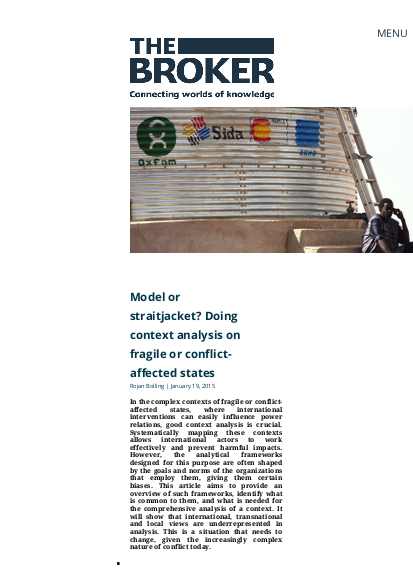
In the complex contexts of fragile or conflict-affected states, where international interventions can easily influence power relations, good context analysis is crucial. Systematically mapping these contexts allows international actors to work effectively and prevent harmful impacts. However, the analytical frameworks designed for this purpose are often shaped by the goals and norms of the organizations that employ them, giving them certain biases. This article aims to provide an overview of such frameworks, identify what is common to them, and what is needed for the comprehensive analysis of a context. It will show that international, transnational and local views are underrepresented in analysis. This is a situation that needs to change, given the increasingly complex nature of conflict today.
Links
Resource collections
- UN Habitat - Urban Response Collection
- Urban Response - Urban Crisis Preparedness and Risk Reduction
- Urban Response Collection - Community Engagement and Social Cohesion
- Urban Response Collection - Economic Recovery
- Urban Response Collection - Environment and Climate Change
- Urban Response Collection - Housing, Land and Property
- Urban Response Collection - Urban Crisis Response, Recovery and Reconstruction
- Urban Response Collection - Urban Resilience